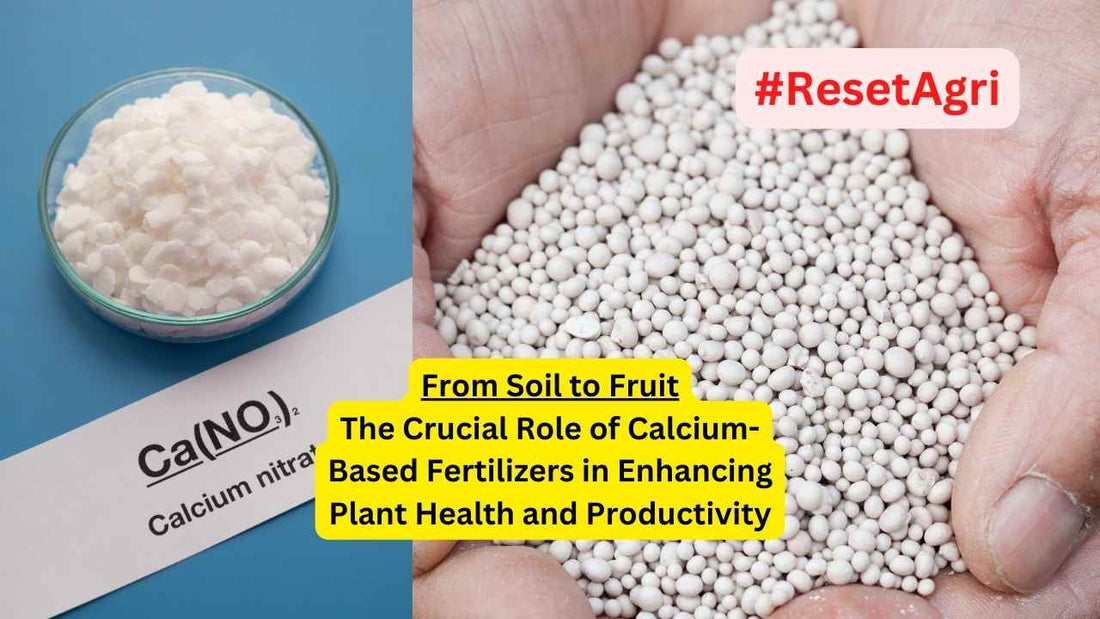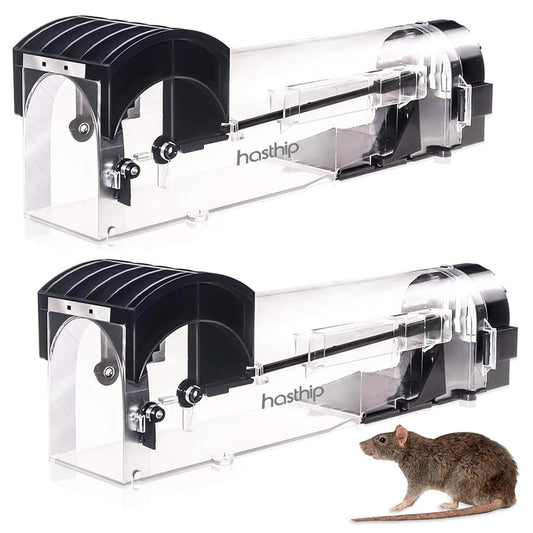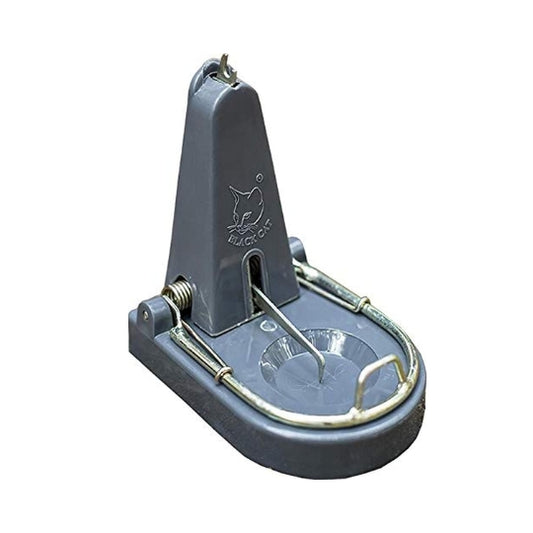
From Soil to Fruit The Crucial Role of Calcium-Based Fertilizers in Enhancing Plant Health and Productivity
Share
Calcium is an important secondary macronutrient for plant growth, and calcium-based fertilizers are designed to supply this nutrient to plants. Calcium plays a crucial role in cell division, cell wall formation, and membrane integrity in plants. Here are some of the key roles of calcium-based fertilizers in promoting plant growth and health:
Enhance plant growth and development: Calcium is essential for cell division, which is crucial for plant growth and development. Calcium-based fertilizers can help promote healthy growth in plants, particularly in young plants.
Improve fruit quality: Calcium is important for the development and quality of fruits and vegetables. Calcium-based fertilizers can help improve the texture, shelf life, and overall quality of fruits and vegetables, particularly those that are prone to disorders such as blossom-end rot.
Increase plant tolerance to stress: Calcium can help plants to tolerate stress from factors such as drought, high salinity, and low temperatures. Calcium-based fertilizers can help improve plant resilience to environmental stresses.
Reduce plant diseases: Calcium can help reduce the incidence of plant diseases, particularly those caused by fungal pathogens. Calcium-based fertilizers can help improve plant resistance to diseases and promote overall plant health.
Improve soil structure: Calcium can help improve soil structure by promoting the formation of stable soil aggregates. This can help improve water infiltration and retention, as well as nutrient availability to plants.
It's important to note that while calcium is an important nutrient for plant growth and health, excessive calcium can also be detrimental to plants. Overuse of calcium-based fertilizers can lead to imbalances in other nutrients and can result in reduced plant growth and health. As with any fertilizer, it's important to follow recommended application rates and soil testing guidelines when using calcium-based fertilizers.
There are several types of fertilizers that contain calcium, including:
Calcium carbonate: This is a common source of calcium in agricultural fertilizers. It is often used to correct soil pH and can be added directly to soil. The recommended dose of calcium carbonate as a soil amendment ranges from 1 to 3 metric tons per hectare.
Calcium nitrate: This is a water-soluble fertilizer that contains both calcium and nitrogen. It is often used as a quick-release fertilizer and can be applied to plants through irrigation or as a foliar spray. As a soil amendment, the recommended dose of calcium nitrate is typically around 22.7-45.4 kg per hectare. As a foliar spray, it is typically applied at a rate of 0.9-1.8 kg per 378.5 liters of water.
Calcium sulfate: This is another common source of calcium in fertilizers. It is often used to correct soil pH and can be added directly to soil or applied as a foliar spray. The recommended dose of calcium sulfate as a soil amendment ranges from 907 to 4536 kg per hectare.
Calcium ammonium nitrate: This is a type of fertilizer that contains both calcium and nitrogen. It is often used as a quick-release fertilizer and can be applied to plants through irrigation or as a foliar spray. The recommended dose of calcium ammonium nitrate as a fertilizer is typically around 45.4-90.8 kg per hectare.
Dolomite lime: This is a type of fertilizer that contains calcium and magnesium. It is often used to correct soil pH and can be added directly to soil or applied as a foliar spray. The recommended dose of dolomite lime as a soil amendment ranges from 1 to 3 metric tons per hectare.
Gypsum: This is a type of fertilizer that contains calcium and sulfur. It is often used to correct soil pH and improve soil structure, and can be added directly to soil or applied as a foliar spray. The recommended dose of gypsum as a soil amendment ranges from 2268 to 18144 kg per hectare.
Bone meal: This is a type of organic fertilizer that contains calcium, phosphorus, and other micronutrients. It is often used as a soil amendment to provide long-term fertility and can be applied directly to soil. ecommended dose of bone meal as a fertilizer for an acre of land in Indian metric units is approximately 181.44-362.88 kg per acre.
There are other fertilizers that may also contain calcium, either as a primary or secondary nutrient. It's important to carefully read fertilizer labels and consult with a local agricultural expert to determine the appropriate type and application rate of calcium-based fertilizers for specific crops and soil conditions.
Enhance plant growth and development: Calcium is essential for cell division, which is crucial for plant growth and development. Calcium-based fertilizers can help promote healthy growth in plants, particularly in young plants.
Improve fruit quality: Calcium is important for the development and quality of fruits and vegetables. Calcium-based fertilizers can help improve the texture, shelf life, and overall quality of fruits and vegetables, particularly those that are prone to disorders such as blossom-end rot.
Increase plant tolerance to stress: Calcium can help plants to tolerate stress from factors such as drought, high salinity, and low temperatures. Calcium-based fertilizers can help improve plant resilience to environmental stresses.
Reduce plant diseases: Calcium can help reduce the incidence of plant diseases, particularly those caused by fungal pathogens. Calcium-based fertilizers can help improve plant resistance to diseases and promote overall plant health.
Improve soil structure: Calcium can help improve soil structure by promoting the formation of stable soil aggregates. This can help improve water infiltration and retention, as well as nutrient availability to plants.
It's important to note that while calcium is an important nutrient for plant growth and health, excessive calcium can also be detrimental to plants. Overuse of calcium-based fertilizers can lead to imbalances in other nutrients and can result in reduced plant growth and health. As with any fertilizer, it's important to follow recommended application rates and soil testing guidelines when using calcium-based fertilizers.
There are several types of fertilizers that contain calcium, including:
Calcium carbonate: This is a common source of calcium in agricultural fertilizers. It is often used to correct soil pH and can be added directly to soil. The recommended dose of calcium carbonate as a soil amendment ranges from 1 to 3 metric tons per hectare.
Calcium nitrate: This is a water-soluble fertilizer that contains both calcium and nitrogen. It is often used as a quick-release fertilizer and can be applied to plants through irrigation or as a foliar spray. As a soil amendment, the recommended dose of calcium nitrate is typically around 22.7-45.4 kg per hectare. As a foliar spray, it is typically applied at a rate of 0.9-1.8 kg per 378.5 liters of water.
Calcium sulfate: This is another common source of calcium in fertilizers. It is often used to correct soil pH and can be added directly to soil or applied as a foliar spray. The recommended dose of calcium sulfate as a soil amendment ranges from 907 to 4536 kg per hectare.
Calcium ammonium nitrate: This is a type of fertilizer that contains both calcium and nitrogen. It is often used as a quick-release fertilizer and can be applied to plants through irrigation or as a foliar spray. The recommended dose of calcium ammonium nitrate as a fertilizer is typically around 45.4-90.8 kg per hectare.
Dolomite lime: This is a type of fertilizer that contains calcium and magnesium. It is often used to correct soil pH and can be added directly to soil or applied as a foliar spray. The recommended dose of dolomite lime as a soil amendment ranges from 1 to 3 metric tons per hectare.
Gypsum: This is a type of fertilizer that contains calcium and sulfur. It is often used to correct soil pH and improve soil structure, and can be added directly to soil or applied as a foliar spray. The recommended dose of gypsum as a soil amendment ranges from 2268 to 18144 kg per hectare.
Bone meal: This is a type of organic fertilizer that contains calcium, phosphorus, and other micronutrients. It is often used as a soil amendment to provide long-term fertility and can be applied directly to soil. ecommended dose of bone meal as a fertilizer for an acre of land in Indian metric units is approximately 181.44-362.88 kg per acre.
There are other fertilizers that may also contain calcium, either as a primary or secondary nutrient. It's important to carefully read fertilizer labels and consult with a local agricultural expert to determine the appropriate type and application rate of calcium-based fertilizers for specific crops and soil conditions.















